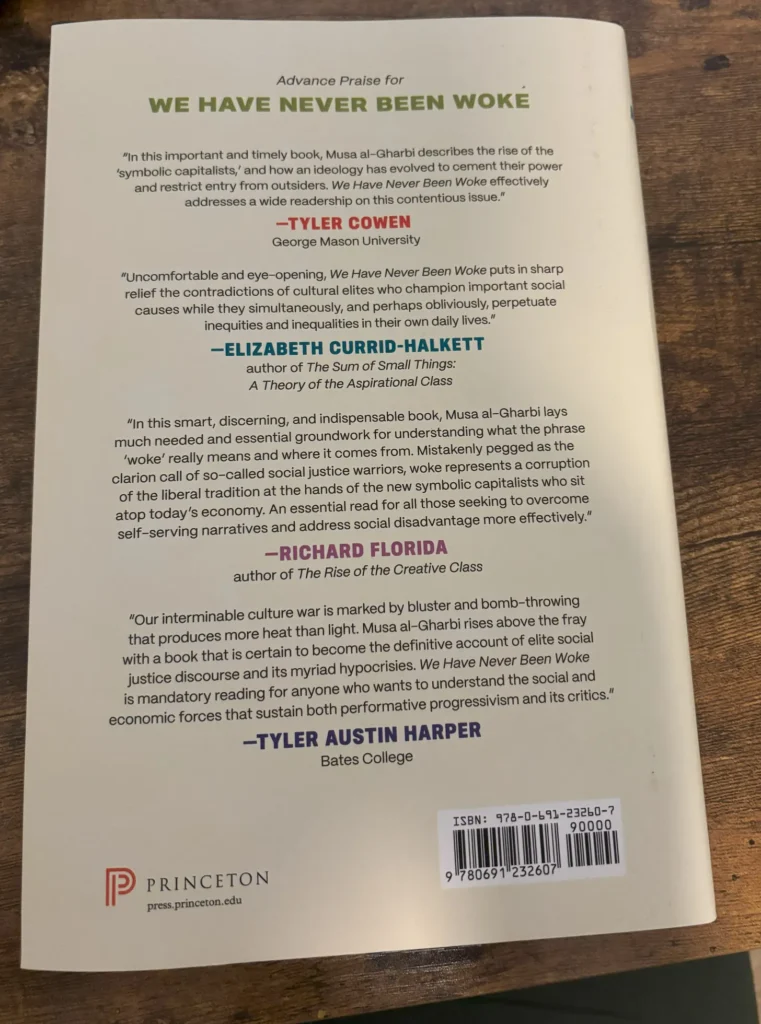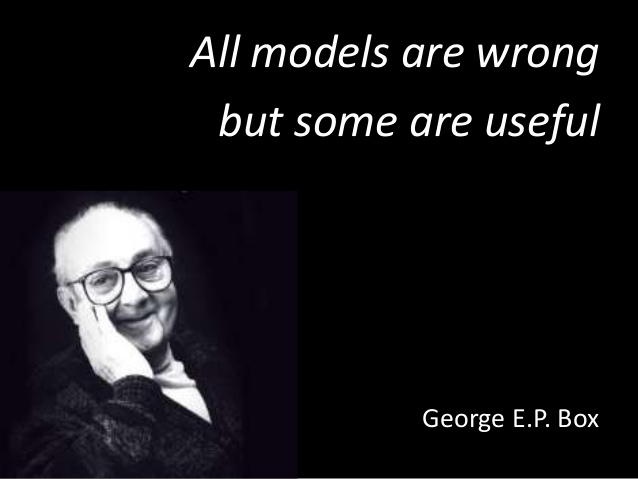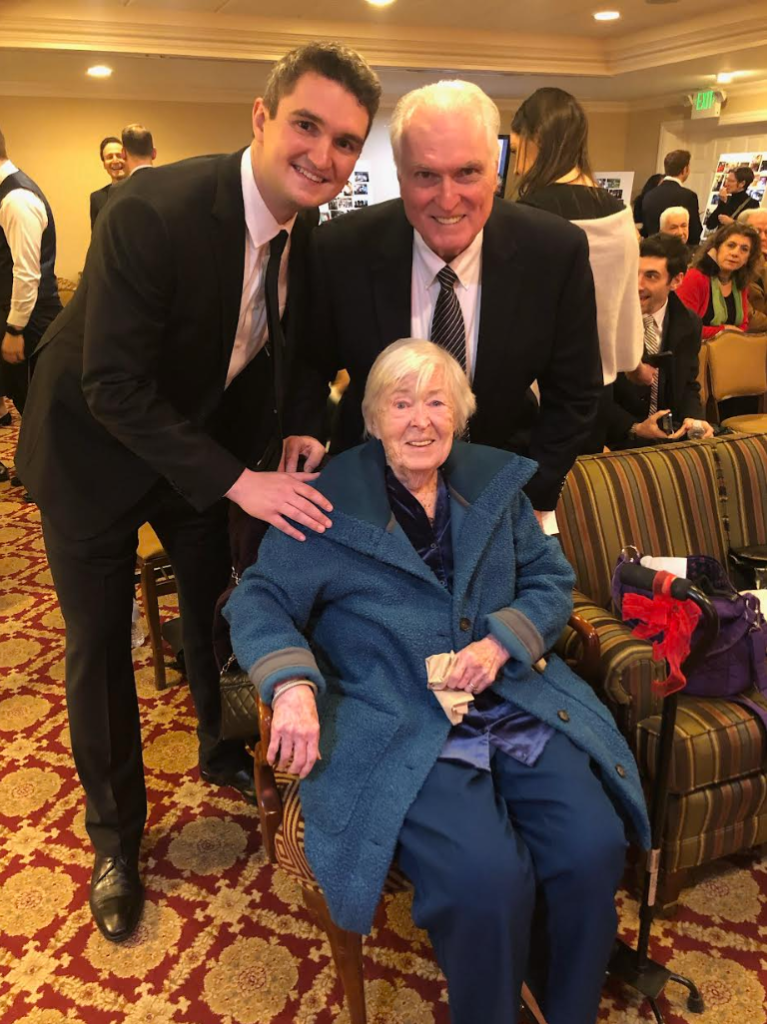
My Aunt Bess died last week; my father’s youngest sibling, the last of that generation. She was 96 and had a full, exciting, and satisfying life. Seeing her discomfort in the hospital (they remain horrible places in which to lie) affirmed that her death brought relief to her and to the family especially my kind cousins Peg and John who helped her for sixteen years after she moved to Jersey following eighty years in the Bronx and its environs. After the funeral mass and the graveside service, some of us sat around a long table in an Italian restaurant and told stories of her, an NYPD and FBI veteran proud of her pearl handled revolver and her marksmanship, a founder of the Emerald Society Pipe and Drum Band whom we watched as kids from a Fifth Avenue curb each St. Patrick’s Day, a sharply and colorfully opinionated Aunt (e.g., “There was only one perfect man and they crucified him!”) who gave me hell for my ‘liberal’ views, and a Eucharistic minister bringing communion to the sick in their homes. In other words, Bess was a real character; she defied categorization.
So how do I stretch this musing to fit as another Testing: A Personal History post? Categorization is often the outcome of tests formal or ad hoc applied to our fellow humans: we apply our criteria as to what constitutes membership in a certain classification or group. ‘That person is MAGA, this one suffers from Trump Delusion Syndrome. He is a liberal; she is a libertarian, they are ignorant a**holes.’ Such categorizations likely floated about the post-ceremony table where relations who have rarely seen each other chat calculate into which box they should consign this Brooklynite second cousin once removed or that brother-in-law who moved to Florida. But Aunt Bess defied categorization in one unexpected and even shocking late move when she turned against Donald Trump. I was at her home one day when she snarled to get that guy off the TV. Confession: my visits were way too limited to find out what caused the reversal, but it proved again that she had her own standards shaped by the Bronx Irish Catholic NY cop culture devout Catholic nature of hers. Just because she also disapproved of pretty much every Democratic party politician didn’t mean she was giving out free passes to convicted felons who wrote checks for porn stars. Or maybe those things were not the catalyst for the change but she just got tired of his act. Who knows? She defied categorization.

Categorization surfaced again in my thoughts when my friend Hans Sandberg (his SubStack Nordic Link is well worth a look) alerted me to a review by Nicholas Smyth of Musa al-Gharbi’s book, We Have Never Been Woke in which he employs the new category of symbolic capitalists. I’m a fan of the book and sociologist al-Gharbi’s other writing on the web as noted in one of my posts of despair last November. Symbolic capitalists are a particular brand of elite in this designation and I was mad at them. I was mad at the elites who run the Democratic Party who still won’t give an accounting of how they spent 1.5 Billion dollars yet couldn’t get enough people to vote in key locales. I was mad at the elites who sat out the election, the elites who prioritized saving some saplings while the old growth forest was burning. I was mad. And being someone who for most of his straight career fit into the precursor groupings to al-Gharbi’s new designation of symbolic capitalists — the Ehrenreich professional managerial class, Richard Florida’s creative class, Robert Reich’s symbolic analysts — I recognized the utility of a metaphor for this group many of whose members often struck me as hapless in their understanding of real life. More than a few would not have done well around the lasagna and chicken rollatini at Aunt Bess’s funeral lunch.

Since many readers will have not yet read al-Gharbi’s book (but I hope will do so or at least check out his Substack) here is how he explicates his invented term symbolic capitalists:
“In sociological terms, a capitalist is not someone who simply favors capitalism, but rather someone who possesses financial resources (capital) that used to acquire, exert control over, and extract profits from, the means of (material) production. Drawing on Bourdieu, we can define a symbolic capitalist as someone who possesses a high level of symbolic capital, and exerts control over, and extracts profits from, the means of symbolic (re)production. They are elites whose social position is tied to the production, distribution and transformation of symbolic capital.”
But as Hans Sandberg and Nicholas Smyth also note, al-Gharbi has created a metaphor; ‘these people are capitalists with symbols rather than land or gold as their capital.’ As Farnsworth noted in his compilation of metaphors (a book to which I return often) metaphor is ‘the art of comparison‘: ‘A metaphor can make unfamiliar things familiar, invisible things visible, complicated things easier to understand.” And as Toulmin might have said (but didn’t) in his book on argument when we make a metaphor we are making a claim that one thing is perceptibly like another thing if one has the proper perception. I’m suggesting pace Hans and Nicholas that the metaphor of social capitalists needs some tightening.
We should beware of extended metaphors was the advice of my high school English teacher, counsel I have often transgressed. Yes, a loose application of capital to include accumulated knowledge & skill as well as the store of network connections could then fit the OED definition of capitalist: “A person who possesses capital assets; esp. one who invests these esp. for profit in financial and business enterprises.” But knowledge as every English, Sociology, and Theology major knows does not enjoy the ready possibility to investment that hard cash or the deed to a thousand acres of oceanfront property does. A dollar’s worth is set everyday; the value of knowing that Dante wrote in terza rima is much less certain. So Symbolic Capitalists or SCs my just be too broad a class. Is there a difference between those with hire/fire, publish/reject, cast-fund-invite power and those who lack such decision-making rights and just spout on the internet their wokeness?
al-Gharbi acknowledges that there are layers of this class with some enjoying more rewards than others but even the lesser compensated of them “Through espousing ‘woke’ beliefs, symbolic capitalists (and aspirants to the symbolic professions) demonstrate that they the kind of person who ‘plays ball’ — they are aware of, and are willing and able to competently execute, the appropriate scripts for cultural and intellectual elites in response to various cues. That is, ‘wokeness’ is increasingly a means of identifying who is part of ‘the club’ — and it provides a basis for deeming those who are not part of the club as being unworthy of symbolic capital (i.e. people who fail to embrace elite conceptions of ‘social justice’ are held to be underserving of honor, fame, prestige, deference, etc.).” Categorization strikes again, but is the model as useful as it could be?
Hans thought not: “I’ve been eyeing Musa al-Gharbi’s book We Have Never Been Woke: The Cultural Contradictions of a New Elite with its provocative title, but I’ve held back since I find the concept of “symbolic capitalists” rather silly. Intellectuals have always had power to the degree that they could influence the rich and/or powerful, but that doesn’t make them capitalists.” He pointed to Smyth’s Hedgehog Review short review of his bookas a guide to “some of its absurdities.”

It is true that knowing many SCs who are decidedly unwoke gives me pause about the implications stated for the label, but I think there is value in the concept. Value that might be mined as long as we remember that SC is a model and as the great statistician George Box wisely noted, “Essentially, all models are wrong, but some are useful… the practical question is how wrong do they have to be to not be useful.” I don’t think al-Gharbi is that wrong, but Smyth in his criticism makes al-Gharbi’s model more useful and more actionable for me by asking a question” that should be raised but isn’t: “What is it about our shared social structure that explains why the pursuit of these basic human goods ends up reproducing a status quo which denies such goods to others? In trying to get a little for myself, why must I push someone else down? ” In other words, what forms the agency of the SCs in such a way that they use the ‘out’ categorization of others as a way of signalling their virtue in the pursuit of regards both tangible and intangible?
Additionally, I found it a useful tweak when Smyth writes that “Al-Gharbi would do well to distinguish more carefully between intended effects and unintended side-effects.” To be complicit is very different than to be deliberately exploitative. In a world as tangled as ours is, a ‘reality of reality’ that our current president seems not to appreciate, everyone is complicit. The Boston comedian Bill Burr has a sharp and funny point about what we would like to believe about ourselves and what the truth might really be in the actions that we take or do not take to change the world.
al-Gharbi In a less comic but cogent fashion does call out our hypocrisies, and that is what drew me to his analysis of the election. The symbolic capitalists that he describes kid themselves about the differences between their class and the MAGA faithful. They think their “excessive virtue-signaling, the call-out culture, and the dreaded purity spiral” make a difference but they didn’t as the election proved. The SCs are as the Brits originally said preaching to the converted and as we Yanks more metaphorically phrased preaching to the choir, which can produce powerful feelings of satisfaction and efficacy that turn out to disappear once we go out the doors of our metaphorical church.
What is actionable for me is figuring out how to change ‘our shared social structure‘? I think that promptings and ponderings of how and why to drop that can best be done through art right now; no reeducation classes, please. And in the spirit of Aunt Bess in that writing and creating be willing to shift my beliefs when new evidence comes into play.
